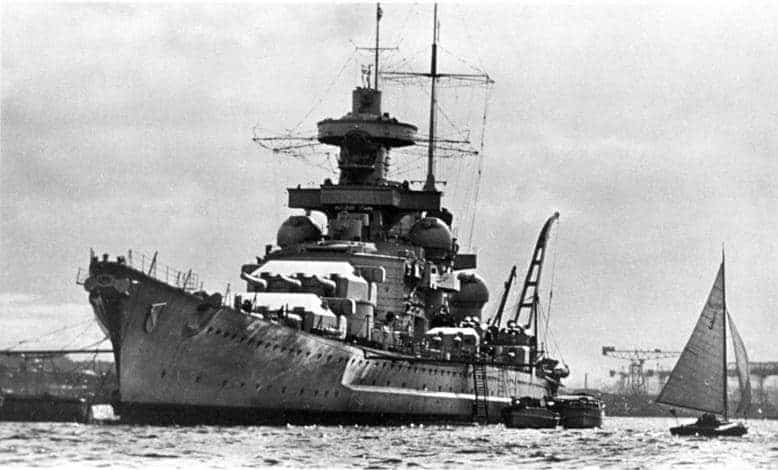On February 11, 1942, the German battleships Gneisenau and Scharnhorst, along with heavy cruiser Prinz Eugen, made a dash from the French port of Brest where they had been moored for almost an entire year. Their objective was to make it through the English Channel and into German waters without an incident.
How they came to be trapped strangely enough mirrors how they finally manage to escape. Prinz Eugen went along with the battleship Bismarck to the Atlantic. They ended up in the Denmark Strait in order to get out of the way from any Royal Navy gunfire. The British were overwhelmed by German fleets since the onset of the war and were all too happy to keep as many of them tied to the French coast as possible. Given this, they keep a keen eye for movement by the Germans ships using both submarines and aircraft. German Vice Admiral Otto Ciliax knew this and concocted a plan to free the ships from their trapped position by using British watchfulness as part of his plan.

Admiral Ciliax knew the British would open fire without hesitation — they had been doing so regularly. The Germans had occupied France since June 1940, and using their land position to their advantage, they lured the British to open fire on them deliberately. Enough chaos erupted, and the Gneisenau, Scharnhorst, and Prinz Eugen were able to break free from their locked positions. They braved the night together with the security of an additional 6 German destroyers and 21 torpedo boats escorting them on their journey.
By morning, numerous warplanes guarded the three massive ships as they slowly made their way to German territory. They had another day of travel left and with that, luck was on their side. By some miracle, the British remained unaware of the activity that had taken place, and did not begin to formulate a full understanding of what happened until midday. By that time, a storm was building, making ship activity throughout the Channel too arduous for their ships catch up with the German vessels.

